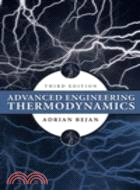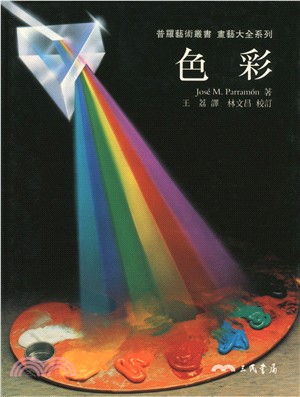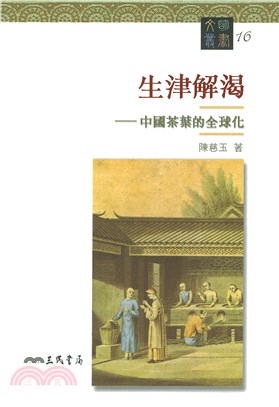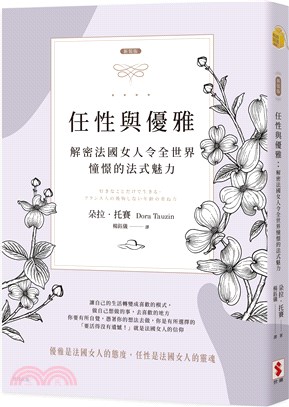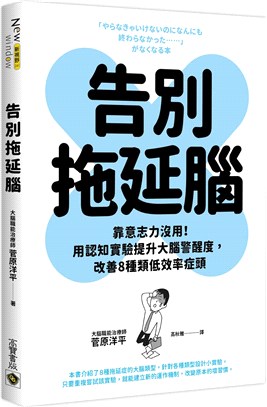ADVANCED ENGINEERING THERMODYNAMICS 3E
商品資訊
ISBN13:9780471677635
出版社:JOHN WILEY & SONS;LTD
作者:BEJAN
出版日:2006/01/01
裝訂:平裝
定價
:NT$ 1900 元絕版無法訂購
相關商品
商品簡介
作者簡介
名人/編輯推薦
目次
商品簡介
A brand-new, thought-provoking edition of the unmatched resource on engineering thermodynamics
Adrian Bejan's Advanced Engineering Thermodynamics established itself as the definitive volume on this challenging subject. Now, his Third Edition builds on the success of its trailblazing predecessors by providing state-of-the-art coverage in a slimmer, more convenient book.
Moving effortlessly among analysis, essay, and graphics, this streamlined edition of Adrian Bejan's powerful presentation will inspire future generations of researchers and students in all areas of engineering, physics, and life sciences. It features:
* An authoritative treatment of the first and second laws of thermodynamics and the constructal law of natural generation of flow configuration, with prominent focus on the history of the discipline and its main ideas
* Complete chapters on single-phase systems, multiphase systems, chemically reactive systems, exergy analysis, thermodynamic optimization, irreversible thermodynamics, and constructal theory
* Applications of thermodynamics to power generation, solar energy, refrigeration, air conditioning, thermofluid design, and constructal design
* The latest theoretical advances made based on the constructal law: atmospheric circulation and earth climate, animal design (flying, running, swimming), hierarchy and geography of human settlements, scaling laws of all river basins, flow fossils and Egyptian pyramids, and science as a constructal flow architecture
* A wealth of problems and worked-out examples
* Brilliant, original illustrations, plus hundreds of classic and contemporary references
Adrian Bejan's Advanced Engineering Thermodynamics established itself as the definitive volume on this challenging subject. Now, his Third Edition builds on the success of its trailblazing predecessors by providing state-of-the-art coverage in a slimmer, more convenient book.
Moving effortlessly among analysis, essay, and graphics, this streamlined edition of Adrian Bejan's powerful presentation will inspire future generations of researchers and students in all areas of engineering, physics, and life sciences. It features:
* An authoritative treatment of the first and second laws of thermodynamics and the constructal law of natural generation of flow configuration, with prominent focus on the history of the discipline and its main ideas
* Complete chapters on single-phase systems, multiphase systems, chemically reactive systems, exergy analysis, thermodynamic optimization, irreversible thermodynamics, and constructal theory
* Applications of thermodynamics to power generation, solar energy, refrigeration, air conditioning, thermofluid design, and constructal design
* The latest theoretical advances made based on the constructal law: atmospheric circulation and earth climate, animal design (flying, running, swimming), hierarchy and geography of human settlements, scaling laws of all river basins, flow fossils and Egyptian pyramids, and science as a constructal flow architecture
* A wealth of problems and worked-out examples
* Brilliant, original illustrations, plus hundreds of classic and contemporary references
作者簡介
Adrian Bejan received his B.S. (1971, Honors Course), M.S. (1972, Honors Course), and Ph.D. (1975) degrees in mechanical engineering, all from the Massachusetts Institute of Technology. From 1976 until 1978 he was a Fellow of the Miller Institute for Basic Research in Science, at the University of California, Berkeley.
Adrian Bejan joined the faculty of the University of Colorado as an assistant professor in 1978 and was promoted to associate professor in 1981. Three years later he was appointed full professor with tenure at Duke University. He was awarded the J. A. Jones distinguished professorship in 1989.
Adrian Bejan has pioneered several original methods in thermal sciences and engineering: for example, entropy-generation minimization, scale analysis of convective heat and mass transfer, heatlines and masslines, designed porous media, the intersection of asymptotes method, and the optimal spacings of compact multiscale structures for maximum transport density. He formulated the constructal theory of design in nature in 1996.
Adrian Bejan is ranked among the 100 most-cited authors in all of engineering (all fields, all countries) by the Institute for Scientific Information (www.isihighlycited.com). He is the author of 20 books and 450 journal articles.
He has received 15 honorary doctorates from universities in 10 countries: for example, the Swiss Federal Institute of Technology (ETH Zürich) in 2003.
Professor Bejan has been honored by the American Society of Mechanical Engineers (ASME) with the Edward F. Obert Award (2004), Charles Russ Richards Memorial Award (2001), Worcester Reed Warner Medal (1996), Heat Transfer Memorial Award-Science (1994), James Harry Potter Gold Medal (1990), and the Gustus L. Larson Memorial Award (1988). In 1999, he received the Max Jakob Memorial Award from the ASME and the American Institute of Chemical Engineers. He was honored with the Ralph Coats Roe Award (2000) by the American Society for Engineering Education.
Adrian Bejan joined the faculty of the University of Colorado as an assistant professor in 1978 and was promoted to associate professor in 1981. Three years later he was appointed full professor with tenure at Duke University. He was awarded the J. A. Jones distinguished professorship in 1989.
Adrian Bejan has pioneered several original methods in thermal sciences and engineering: for example, entropy-generation minimization, scale analysis of convective heat and mass transfer, heatlines and masslines, designed porous media, the intersection of asymptotes method, and the optimal spacings of compact multiscale structures for maximum transport density. He formulated the constructal theory of design in nature in 1996.
Adrian Bejan is ranked among the 100 most-cited authors in all of engineering (all fields, all countries) by the Institute for Scientific Information (www.isihighlycited.com). He is the author of 20 books and 450 journal articles.
He has received 15 honorary doctorates from universities in 10 countries: for example, the Swiss Federal Institute of Technology (ETH Zürich) in 2003.
Professor Bejan has been honored by the American Society of Mechanical Engineers (ASME) with the Edward F. Obert Award (2004), Charles Russ Richards Memorial Award (2001), Worcester Reed Warner Medal (1996), Heat Transfer Memorial Award-Science (1994), James Harry Potter Gold Medal (1990), and the Gustus L. Larson Memorial Award (1988). In 1999, he received the Max Jakob Memorial Award from the ASME and the American Institute of Chemical Engineers. He was honored with the Ralph Coats Roe Award (2000) by the American Society for Engineering Education.
名人/編輯推薦
"Reading the book is a delightful experience that encourages the reader to further deepen his understanding of thermodynamics and the thermal sciences." (Science Direct, December 9, 2007)
"Reading this book is a delightful experience that encourages the reader to further deepen his understanding of thermoydnamics..."
—Jaime Cervantes-de Gortari (Internation Journal of Heat & Mass Transfer, Dec. 2006)
"Reading this book is a delightful experience that encourages the reader to further deepen his understanding of thermoydnamics..."
—Jaime Cervantes-de Gortari (Internation Journal of Heat & Mass Transfer, Dec. 2006)
目次
PREFACE.
PREFACE TO THE SECOND EDITION.
PREFACE TO THE FIRST EDITION.
SYMBOLS.
1 THE FIRST LAW OF THERMODYNAMICS.
1.1 Elements of Thermodynamics Terminology.
1.2 The First Law for Closed Systems.
1.3 Work Transfer.
1.4 Heat Transfer.
1.5 Energy Change.
1.6 The First Law for Open Systems.
1.7 Historical Background.
1.8 The Structured Presentation of the First Law.
References.
Problems.
2 THE SECOND LAW OF THERMODYNAMICS.
2.1 The Second Law for Closed Systems.
2.2 The Second Law for Open Systems.
2.3 The Local Thermodynamic Equilibrium Model.
2.4 The Entropy Maximum and Energy Minimum Principles.
2.5 Carathe´odory’s Two Axioms.
2.6 A Heat Transfer Man’s Two Axioms.
2.7 Historical Background.
References.
Problems.
3 ENTROPY GENERATION, OR EXERGY DESTRUCTION.
3.1 Lost Available Work.
3.2 Cycles.
3.3 Nonflow Processes.
3.4 Steady-Flow Processes.
3.5 Mechanisms of Entropy Generation or Exergy Destruction.
3.6 Entropy-Generation Minimization.
References.
Problems.
4 SINGLE-PHASE SYSTEMS.
4.1 Simple System.
4.2 Equilibrium Conditions.
4.3 The Fundamental Relation.
4.4 Legendre Transforms.
4.5 Relations between Thermodynamic Properties.
4.6 Partial Molal Properties.
4.7 Ideal Gas Mixtures.
4.8 Real Gas Mixtures.
References.
Problems.
5 EXERGY ANALYSIS.
5.1 Nonflow Systems.
5.2 Flow Systems.
5.3 Generalized Exergy Analysis.
5.4 Air-Conditioning Applications.
5.5 Other Aspects of Exergy Analysis.
References.
Problems.
6 MULTIPHASE SYSTEMS.
6.1 The Energy Minimum Principle in U, H, F, and G Representations.
6.2 The Internal Stability of a Simple System.
6.3 The Continuity of the Vapor and Liquid States.
6.4 Phase Diagrams.
6.5 Corresponding States.
References.
Problems.
7 CHEMICALLY REACTIVE SYSTEMS.
7.1 Equilibrium.
7.2 Irreversible Reactions.
7.3 Steady-Flow Combustion.
7.4 The Chemical Exergy of Fuels.
7.5 Constant-Volume Combustion.
References.
Problems.
8 POWER GENERATION.
8.1 Maximum Power Subject to Size Constraint.
8.2 Maximum Power from Hot Stream.
8.3 External Irreversibilities.
8.4 Internal Irreversibilities.
8.5 Advanced Steam-Turbine Power Plants.
8.6 Advanced Gas-Turbine Power Plants.
8.7 Combined Steam-Turbine and Gas-Turbine Power Plants.
References.
Problems.
9 SOLAR POWER.
9.1 Thermodynamic Properties of Thermal Radiation.
9.2 Reversible Processes.
9.3 Irreversible Processes.
9.4 The Ideal Conversion of Enclosed Blackbody Radiation.
9.5 Maximization of Power Output per Unit Collector Area.
9.6 Convectively Cooled Collectors.
9.7 Extraterrestrial Solar Power Plant.
9.8 Nonisothermal Collectors, Time-Varying Conditions, and Solar-Driven Refrigerators.
9.9 Global Circulation and Climate.
References.
Problems.
10 REFRIGERATION.
10.1 Joule–Thomson Expansion.
10.2 Work-Producing Expansion.
10.3 Brayton Cycle.
10.4 Optimal Intermediate Cooling.
10.5 Liquefaction.
10.6 Refrigerator Models with Heat Transfer Irreversibilities.
10.7 Magnetic Refrigeration.
References.
Problems.
11 ENTROPY-GENERATION MINIMIZATION.
11.1 Trade-off between Competing Irreversibilities.
11.2 Balanced Counterflow Heat Exchangers.
11.3 Heat Exchangers with Negligible Pressure-Drop Irreversibility.
11.4 Storage Systems.
11.5 Power Maximization or Entropy-Generation Minimization.
11.6 From Entropy-Generation Minimization to Constructal Theory.
References.
Problems.
12 IRREVERSIBLE THERMODYNAMICS.
12.1 Conjugate Fluxes and Forces.
12.2 Linearized Relations.
12.3 Reciprocity Relations.
12.4 Thermoelectric Phenomena.
12.5 Heat Conduction in Anisotropic Media.
12.6 Mass Diffusion.
References.
Problems.
13 THE CONSTRUCTAL LAW OF CONFIGURATION GENERATION.
13.1 The Constructal Law.
13.2 The Area-Point Access Problem.
13.3 Natural Flow Patterns.
13.4 Constructal Theory of Distribution of City Sizes, by A. Bejan, S. Lorente, A. F. Miguel, and A. H. Reis.
13.5 Constructal Theory of Distribution of River Sizes, by A. Bejan, S. Lorente, A. F. Miguel, and A. H. Reis.
13.6 Constructal Theory of Egyptian Pyramids and Flow Fossils in General, by A. Bejan and S. Périn.
13.7 The Broad View: Biology, Physics, and Engineering.
13.8 Constructal Theory of Running, Swimming and Flying, by A. Bejan and J. H. Marden.
13.9 Science and Civilization as Constructal Flow Systems.
13.10 Freedom Is Good for Design.
References.
Problems.
APPENDIX.
Constants.
Mathematical Formulas.
Variational Calculus.
Properties of Moderately Compressed-Liquid States.
Properties of Slightly Superheated-Vapor States.
Properties of Cold Water near the Density Maximum.
Analysis of Engineering Components.
The Flow Exergy of Gases at Low Pressures.
Tables.
References.
ABOUT THE AUTHOR.
AUTHOR INDEX.
SUBJECT INDEX.
PREFACE TO THE SECOND EDITION.
PREFACE TO THE FIRST EDITION.
SYMBOLS.
1 THE FIRST LAW OF THERMODYNAMICS.
1.1 Elements of Thermodynamics Terminology.
1.2 The First Law for Closed Systems.
1.3 Work Transfer.
1.4 Heat Transfer.
1.5 Energy Change.
1.6 The First Law for Open Systems.
1.7 Historical Background.
1.8 The Structured Presentation of the First Law.
References.
Problems.
2 THE SECOND LAW OF THERMODYNAMICS.
2.1 The Second Law for Closed Systems.
2.2 The Second Law for Open Systems.
2.3 The Local Thermodynamic Equilibrium Model.
2.4 The Entropy Maximum and Energy Minimum Principles.
2.5 Carathe´odory’s Two Axioms.
2.6 A Heat Transfer Man’s Two Axioms.
2.7 Historical Background.
References.
Problems.
3 ENTROPY GENERATION, OR EXERGY DESTRUCTION.
3.1 Lost Available Work.
3.2 Cycles.
3.3 Nonflow Processes.
3.4 Steady-Flow Processes.
3.5 Mechanisms of Entropy Generation or Exergy Destruction.
3.6 Entropy-Generation Minimization.
References.
Problems.
4 SINGLE-PHASE SYSTEMS.
4.1 Simple System.
4.2 Equilibrium Conditions.
4.3 The Fundamental Relation.
4.4 Legendre Transforms.
4.5 Relations between Thermodynamic Properties.
4.6 Partial Molal Properties.
4.7 Ideal Gas Mixtures.
4.8 Real Gas Mixtures.
References.
Problems.
5 EXERGY ANALYSIS.
5.1 Nonflow Systems.
5.2 Flow Systems.
5.3 Generalized Exergy Analysis.
5.4 Air-Conditioning Applications.
5.5 Other Aspects of Exergy Analysis.
References.
Problems.
6 MULTIPHASE SYSTEMS.
6.1 The Energy Minimum Principle in U, H, F, and G Representations.
6.2 The Internal Stability of a Simple System.
6.3 The Continuity of the Vapor and Liquid States.
6.4 Phase Diagrams.
6.5 Corresponding States.
References.
Problems.
7 CHEMICALLY REACTIVE SYSTEMS.
7.1 Equilibrium.
7.2 Irreversible Reactions.
7.3 Steady-Flow Combustion.
7.4 The Chemical Exergy of Fuels.
7.5 Constant-Volume Combustion.
References.
Problems.
8 POWER GENERATION.
8.1 Maximum Power Subject to Size Constraint.
8.2 Maximum Power from Hot Stream.
8.3 External Irreversibilities.
8.4 Internal Irreversibilities.
8.5 Advanced Steam-Turbine Power Plants.
8.6 Advanced Gas-Turbine Power Plants.
8.7 Combined Steam-Turbine and Gas-Turbine Power Plants.
References.
Problems.
9 SOLAR POWER.
9.1 Thermodynamic Properties of Thermal Radiation.
9.2 Reversible Processes.
9.3 Irreversible Processes.
9.4 The Ideal Conversion of Enclosed Blackbody Radiation.
9.5 Maximization of Power Output per Unit Collector Area.
9.6 Convectively Cooled Collectors.
9.7 Extraterrestrial Solar Power Plant.
9.8 Nonisothermal Collectors, Time-Varying Conditions, and Solar-Driven Refrigerators.
9.9 Global Circulation and Climate.
References.
Problems.
10 REFRIGERATION.
10.1 Joule–Thomson Expansion.
10.2 Work-Producing Expansion.
10.3 Brayton Cycle.
10.4 Optimal Intermediate Cooling.
10.5 Liquefaction.
10.6 Refrigerator Models with Heat Transfer Irreversibilities.
10.7 Magnetic Refrigeration.
References.
Problems.
11 ENTROPY-GENERATION MINIMIZATION.
11.1 Trade-off between Competing Irreversibilities.
11.2 Balanced Counterflow Heat Exchangers.
11.3 Heat Exchangers with Negligible Pressure-Drop Irreversibility.
11.4 Storage Systems.
11.5 Power Maximization or Entropy-Generation Minimization.
11.6 From Entropy-Generation Minimization to Constructal Theory.
References.
Problems.
12 IRREVERSIBLE THERMODYNAMICS.
12.1 Conjugate Fluxes and Forces.
12.2 Linearized Relations.
12.3 Reciprocity Relations.
12.4 Thermoelectric Phenomena.
12.5 Heat Conduction in Anisotropic Media.
12.6 Mass Diffusion.
References.
Problems.
13 THE CONSTRUCTAL LAW OF CONFIGURATION GENERATION.
13.1 The Constructal Law.
13.2 The Area-Point Access Problem.
13.3 Natural Flow Patterns.
13.4 Constructal Theory of Distribution of City Sizes, by A. Bejan, S. Lorente, A. F. Miguel, and A. H. Reis.
13.5 Constructal Theory of Distribution of River Sizes, by A. Bejan, S. Lorente, A. F. Miguel, and A. H. Reis.
13.6 Constructal Theory of Egyptian Pyramids and Flow Fossils in General, by A. Bejan and S. Périn.
13.7 The Broad View: Biology, Physics, and Engineering.
13.8 Constructal Theory of Running, Swimming and Flying, by A. Bejan and J. H. Marden.
13.9 Science and Civilization as Constructal Flow Systems.
13.10 Freedom Is Good for Design.
References.
Problems.
APPENDIX.
Constants.
Mathematical Formulas.
Variational Calculus.
Properties of Moderately Compressed-Liquid States.
Properties of Slightly Superheated-Vapor States.
Properties of Cold Water near the Density Maximum.
Analysis of Engineering Components.
The Flow Exergy of Gases at Low Pressures.
Tables.
References.
ABOUT THE AUTHOR.
AUTHOR INDEX.
SUBJECT INDEX.
主題書展
更多
主題書展
更多書展本週66折
您曾經瀏覽過的商品
購物須知
為了保護您的權益,「三民網路書店」提供會員七日商品鑑賞期(收到商品為起始日)。
若要辦理退貨,請在商品鑑賞期內寄回,且商品必須是全新狀態與完整包裝(商品、附件、發票、隨貨贈品等)否則恕不接受退貨。



